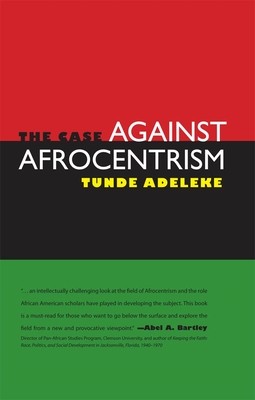
- We will send in 10–14 business days.
- Author: Tunde Adeleke
- Publisher: University Press of Mississippi
- ISBN-10: 1617033316
- ISBN-13: 9781617033315
- Format: 15.2 x 22.9 x 1.4 cm, minkšti viršeliai
- Language: English
- SAVE -10% with code: EXTRA
Reviews
Description
Postcolonial discourses on African Diaspora history and relations have traditionally focused intensely on highlighting the common experiences and links between black Africans and African Americans. This is especially true of Afrocentric scholars and supporters who use Africa to construct and validate a monolithic, racial, and culturally essentialist worldview. Publications by Afrocentric scholars such as Molefi Asante, Marimba Ani, Maulana Karenga, and the late John Henrik Clarke have emphasized the centrality of Africa to the construction of Afrocentric essentialism. In the last fifteen years, however, countervailing critical scholarship has challenged essentialist interpretations of Diaspora history. Critics such as Stephen Howe, Yaacov Shavit, and Clarence Walker have questioned and refuted the intellectual and cultural underpinnings of Afrocentric essentialist ideology.
Tunde Adeleke deconstructs Afrocentric essentialism by illuminating and interrogating the problematic situation of Africa as the foundation of a racialized worldwide African Diaspora. He attempts to fill an intellectual gap by analyzing the contradictions in Afrocentric representations of the continent. These include multiple, conflicting, and ambivalent portraits of Africa; the use of the continent as a global, unifying identity for all blacks; the de-emphasizing and nullification of New World acculturation; and the ahistoristic construction of a monolithic African Diaspora worldwide.EXTRA 10 % discount with code: EXTRA
The promotion ends in 22d.18:58:44
The discount code is valid when purchasing from 10 €. Discounts do not stack.
- Author: Tunde Adeleke
- Publisher: University Press of Mississippi
- ISBN-10: 1617033316
- ISBN-13: 9781617033315
- Format: 15.2 x 22.9 x 1.4 cm, minkšti viršeliai
- Language: English English
Postcolonial discourses on African Diaspora history and relations have traditionally focused intensely on highlighting the common experiences and links between black Africans and African Americans. This is especially true of Afrocentric scholars and supporters who use Africa to construct and validate a monolithic, racial, and culturally essentialist worldview. Publications by Afrocentric scholars such as Molefi Asante, Marimba Ani, Maulana Karenga, and the late John Henrik Clarke have emphasized the centrality of Africa to the construction of Afrocentric essentialism. In the last fifteen years, however, countervailing critical scholarship has challenged essentialist interpretations of Diaspora history. Critics such as Stephen Howe, Yaacov Shavit, and Clarence Walker have questioned and refuted the intellectual and cultural underpinnings of Afrocentric essentialist ideology.
Tunde Adeleke deconstructs Afrocentric essentialism by illuminating and interrogating the problematic situation of Africa as the foundation of a racialized worldwide African Diaspora. He attempts to fill an intellectual gap by analyzing the contradictions in Afrocentric representations of the continent. These include multiple, conflicting, and ambivalent portraits of Africa; the use of the continent as a global, unifying identity for all blacks; the de-emphasizing and nullification of New World acculturation; and the ahistoristic construction of a monolithic African Diaspora worldwide.

Reviews